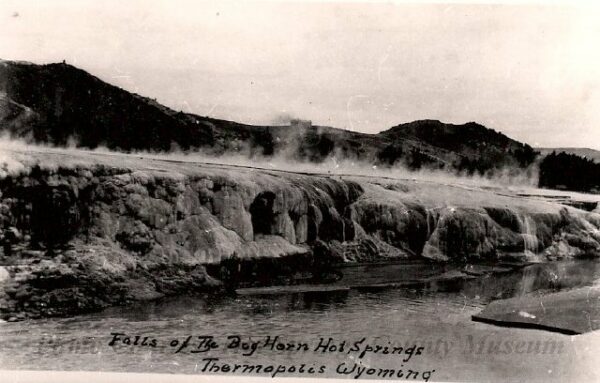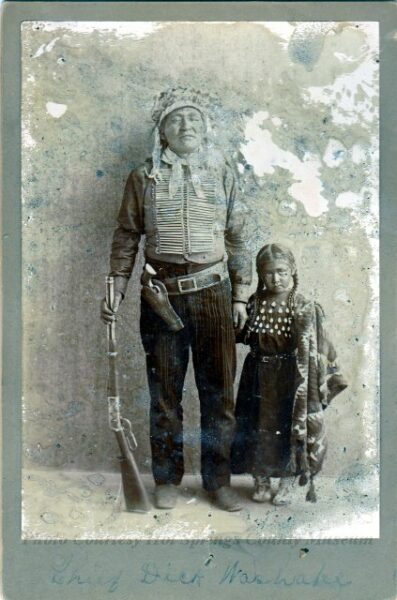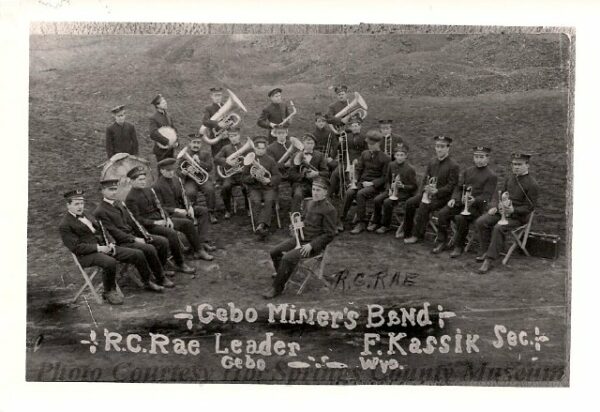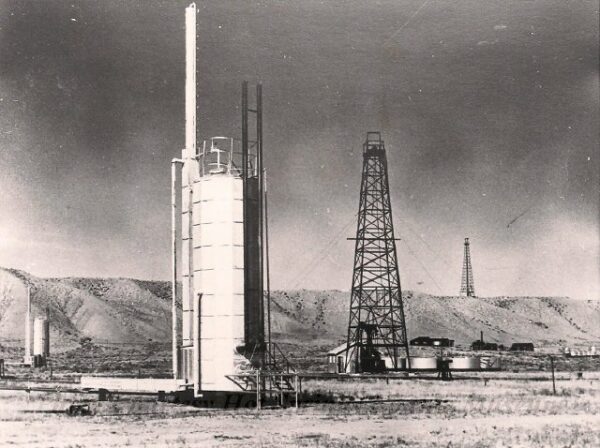The Hot Springs County Museum and Cultural Center recently became a partner of the Plains to Peaks Collective (PPC) sharing over 8,300 historic photographs with the Digital Public Library of America (DPLA). The Center is located in Thermopolis, Wyoming the largest town in Hot Springs County and home to the world’s largest mineral hot spring.

The Center is home to a large collection that documents the story of early pioneers, homesteaders and explorers; the Eastern Shoshone and Northern Arapaho tribes; the growth of tourism related to the hot springs; the development of the county’s agricultural and energy industries; and so much more.

In 2019 the Museum and Cultural Center was awarded funds from the Wyoming State Historical Records Advisory Board (SHRAB) to digitize and organize the Center’s collection of photographs, records and artifacts of the Gebo, Crosby and Kirby coal towns. Coal was one of the first mineral resources to be developed in Hot Springs County. Gebo, named after Samuel Wilford Gebo who established the Owl Creek Coal Company, was established as a coal town in 1907 alongside the nearby camps of Crosby and Kirby. Mining remained active until 1938. At its height, over 2,000 people lived in the area, mostly miners and their families, making Gebo briefly the largest town in the county. Only a few buildings and a cemetery remain.


SHRAB provides grants to support projects that both enable and promote the identification, preservation and dissemination of Wyoming’s historical records. These grants are made possible by funds received from the National Historical Publications and Records Commission that SHRAB is then able to re-grant to governments, repositories and organizations around the state.
SHRAB recently awarded the Center funds to identify, digitally preserve and make publicly accessible images from scrapbooks that document the Grass Creek oil camp. This collection is significant to Wyoming’s historical narrative because it documents life in a Wyoming oil camp. The photographs cover a wide range of subjects including the daily camp life of workers and their families, buildings, oil rigs and coal mine sites, as well as the ghost town of Ilo. The Center will use the funds to hire an outside consultant to complete work making the photographs available publicly in both their own online database as well as sharing them with the DPLA.

Phyllis Baker, Secretary for the Board of Directors, Hot Springs County Museum, recently shared the Center’s experience working with SHRAB.
The Hot Springs County Museum received a grant two years ago from SHRAB for a special project. (It had been many, many years since the museum had applied for a grant). At the time the SHRAB grant was approved, it was mentioned that our project would be a good candidate for the DPLA.
We pursued the suggestion and now we are members of DPLA, and not only do they have the first SHRAB project, and will have our project that was just approved by SHRAB, but they are interested in our complete collection of photographs. Now, we will be able to add photos to DPLA as our collection is updated.
None of this would have been possible had it not been for that first SHRAB grant. It has opened up new opportunities for us, and we’ve applied for other grants. We recently received a $50,000 grant for a school immersion program in our rural one-room schoolhouse, where 3rd and 4th graders will experience what it was like to attend school in the 1920s, complete with costumes, character cards, and the curriculum that was used in Wyoming during that time period.
I hope more small museums will take advantage of a SHRAB grant; it may open a whole new world for them, too.
If you would like to learn more about SHRAB and how to apply for regrant funding please visit their webpage. The Plains to Peaks Collective works to share Colorado and Wyoming collections with the DPLA’s large national audience. The PPC currently has 50 partners from Colorado and Wyoming sharing over 553,000 unique historic items with the DPLA. Sharing online collections with the DPLA is easy (I promise!) and participation is free. Please contact me at ljeremias@coloradovirtuallibrary.org if you would like to learn more.
- 2025 Support for Newspaper Digitization - November 13, 2024
- An Appreciation of the Colorado Historic Newspapers Collection - November 4, 2024
- “Journalism is the first rough draft of history” – Philip L. Graham - October 23, 2024